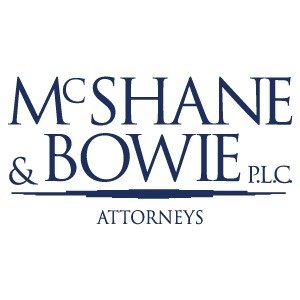Best Sanctions & Export Controls Lawyers in Grand Rapids
Share your needs with us, get contacted by law firms.
Free. Takes 2 min.
List of the best lawyers in Grand Rapids, United States
About Sanctions & Export Controls Law in Grand Rapids, United States
Sanctions and export controls law in Grand Rapids, United States, refers to a combination of federal regulations and local enforcement mechanisms that govern the transfer of goods, technology, software, and services across U.S. borders. The underlying goal is to protect national security, uphold U.S. foreign policy interests, and prevent support to parties or regions deemed problematic by the government. Sanctions usually prohibit or restrict business dealings with specific countries, companies, or individuals, while export controls limit the sharing or shipping of sensitive items or information. Companies and individuals based in Grand Rapids must comply with these regulations as part of their business operations, regardless of their size or industry.
Why You May Need a Lawyer
Sanctions and export controls can be highly complex and violations may result in severe penalties including heavy fines and criminal charges. You may need a lawyer in situations such as:
- Exporting goods, software, or technology outside the United States
- Conducting business with foreign customers, suppliers, or business partners
- Uncertainty about whether your products, technology, or services are restricted
- Concerns about potential violations or audits by regulatory authorities
- Facing an investigation or enforcement action from the U.S. government
- Receiving requests from overseas companies or governments that may involve restricted countries or entities
- Mergers or acquisitions involving foreign entities or dual-use technologies
- Developing compliance programs for your organization
Legal guidance can help protect you or your business, minimize risk, and ensure that you remain compliant with all applicable laws and regulations.
Local Laws Overview
Grand Rapids businesses and residents are subject to U.S. federal laws related to sanctions and export controls, including the International Traffic in Arms Regulations (ITAR), the Export Administration Regulations (EAR), and rules administered by the Office of Foreign Assets Control (OFAC). While these are federal laws, they are enforced locally through U.S. Customs and Border Protection, the U.S. Attorney’s Office, and other related agencies. Key aspects include:
- Restricted countries and entities: Trade is limited or prohibited with certain nations and individuals designated by the U.S. government
- Licensing requirements: Many exports or technology transfers require advance approval or a license from U.S. authorities
- Deemed exports: Sharing controlled technology or data with foreign nationals within the United States can be regulated in the same way as actual exports
- Compliance obligations: Businesses must implement effective means to identify and screen parties, classify their products, and adhere to recordkeeping requirements
- Penalties: Noncompliance can result in substantial civil or criminal penalties, including asset freezes, loss of export privileges, or incarceration
Frequently Asked Questions
What are sanctions and export controls?
Sanctions are legal restrictions on trade and financial activities with particular countries, entities, or individuals. Export controls are regulations that determine what goods, technologies, or information can be sent abroad or shared with foreign nationals.
Which government agencies regulate sanctions and export controls?
The U.S. Department of Treasury’s Office of Foreign Assets Control (OFAC), Department of Commerce’s Bureau of Industry and Security (BIS), and Department of State’s Directorate of Defense Trade Controls (DDTC) are the primary agencies.
Are there additional requirements for Grand Rapids businesses?
Grand Rapids businesses must follow federal laws. However, depending on industry and location, additional state or local rules regarding compliance and security may apply.
Do small businesses need to worry about sanctions and export controls?
Yes. Size does not exempt a business from laws regarding controlled exports or dealing with sanctioned parties. Every business with international reach must comply.
What is a “deemed export”?
A deemed export happens when controlled technology or data is released to a foreign national within U.S. borders. This can occur via verbal communication, emails, or facility tours.
What are the consequences of noncompliance?
Consequences can include civil fines, loss of export privileges, criminal charges, and even imprisonment, depending on the severity of the violation.
How do I find out if my product is controlled?
You need to determine your product’s Export Control Classification Number (ECCN) or check against the U.S. Munitions List. A lawyer can help with classification and licensing questions.
Can an individual be liable for violations?
Yes, company officers, employees, and individuals can be personally liable for knowingly violating sanctions or export control laws.
What should I do if I think I have violated a regulation?
Contact a lawyer immediately. Self-disclosure to authorities, with proper legal counsel, may help reduce penalties in some cases.
How can I reduce my risk of violating sanctions or export controls?
Implement a compliance program, train staff, use screening tools, and consult with an experienced attorney for guidance on best practices.
Additional Resources
For more information or guidance, consider contacting or exploring materials from:
- U.S. Department of Treasury - Office of Foreign Assets Control (OFAC)
- U.S. Department of Commerce - Bureau of Industry and Security (BIS)
- U.S. Department of State - Directorate of Defense Trade Controls (DDTC)
- U.S. Customs and Border Protection (CBP), Grand Rapids office
- Local bar associations and business chambers in Grand Rapids
- Nonprofit organizations that support compliance, such as the World Trade Center
Next Steps
If you need legal assistance with sanctions and export controls in Grand Rapids:
- Document your situation in detail, including any correspondence or business activities in question
- Research and contact attorneys in Grand Rapids who specialize in international trade law and U.S. export controls
- Schedule a consultation to discuss your case, potential risks, and compliance strategies
- Follow professional legal advice closely to ensure resolution and minimize exposure
Seeking qualified legal counsel can make a significant difference in avoiding penalties and ensuring your business remains fully compliant with all applicable sanctions and export control laws.
Lawzana helps you find the best lawyers and law firms in Grand Rapids through a curated and pre-screened list of qualified legal professionals. Our platform offers rankings and detailed profiles of attorneys and law firms, allowing you to compare based on practice areas, including Sanctions & Export Controls, experience, and client feedback.
Each profile includes a description of the firm's areas of practice, client reviews, team members and partners, year of establishment, spoken languages, office locations, contact information, social media presence, and any published articles or resources. Most firms on our platform speak English and are experienced in both local and international legal matters.
Get a quote from top-rated law firms in Grand Rapids, United States — quickly, securely, and without unnecessary hassle.
Disclaimer:
The information provided on this page is for general informational purposes only and does not constitute legal advice. While we strive to ensure the accuracy and relevance of the content, legal information may change over time, and interpretations of the law can vary. You should always consult with a qualified legal professional for advice specific to your situation.
We disclaim all liability for actions taken or not taken based on the content of this page. If you believe any information is incorrect or outdated, please contact us, and we will review and update it where appropriate.











